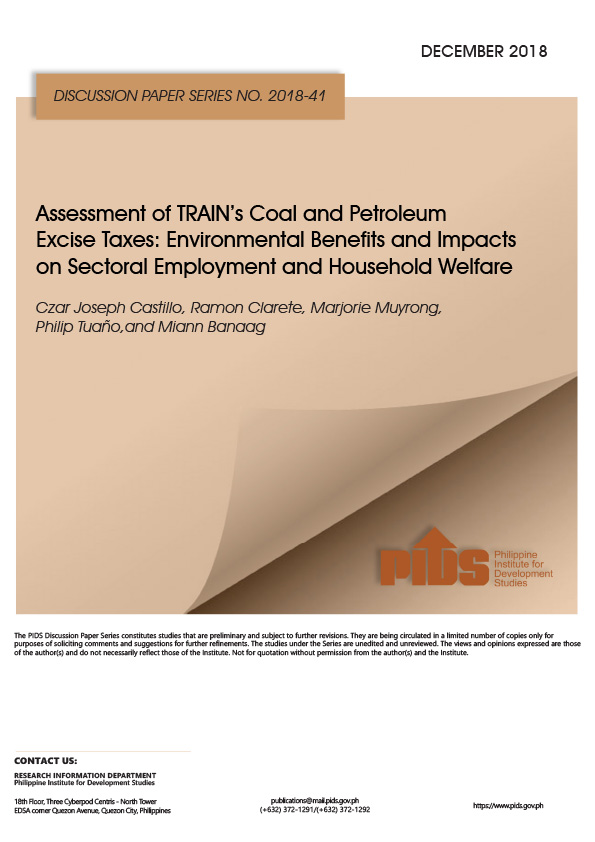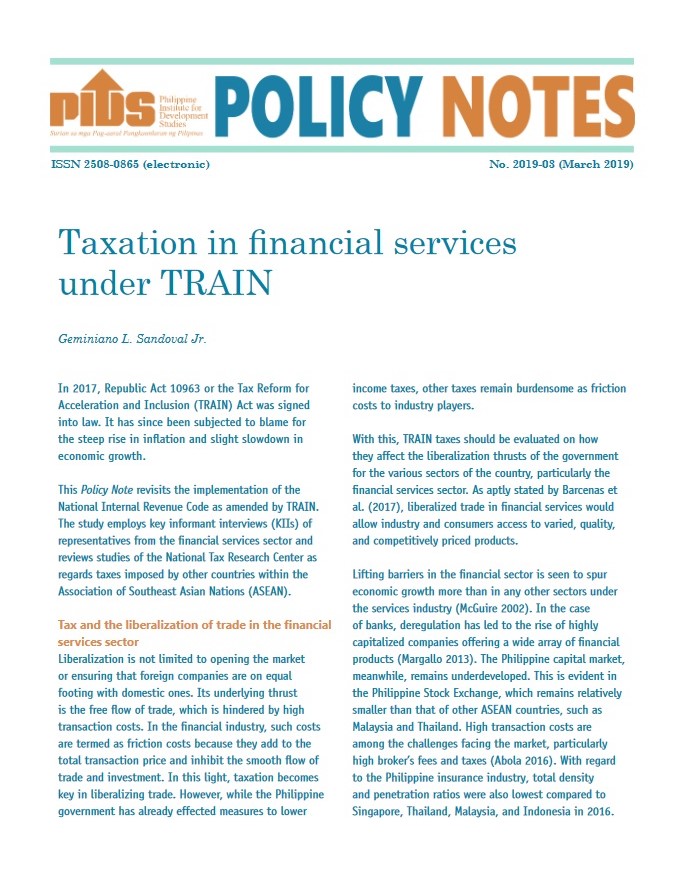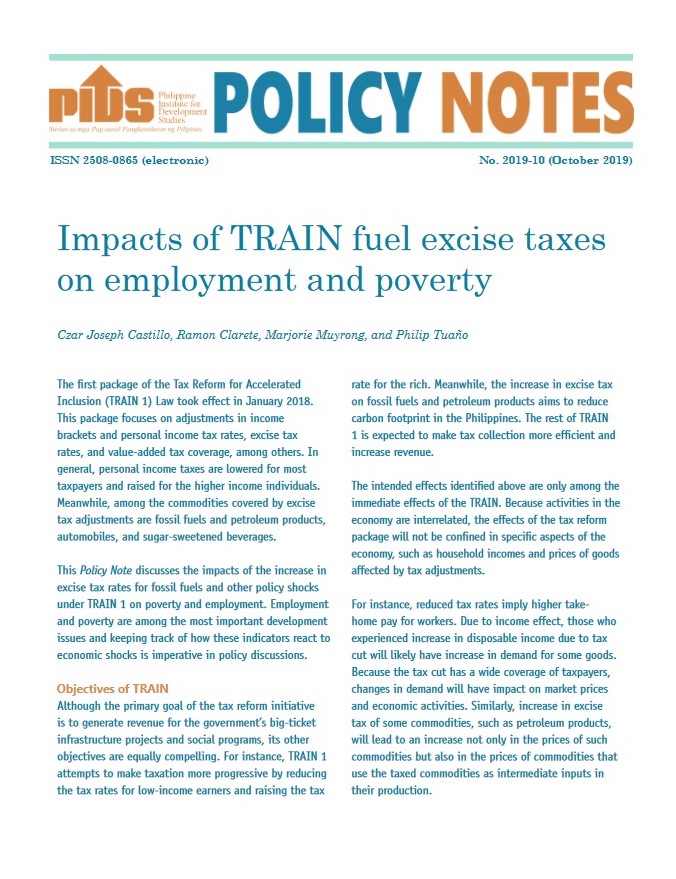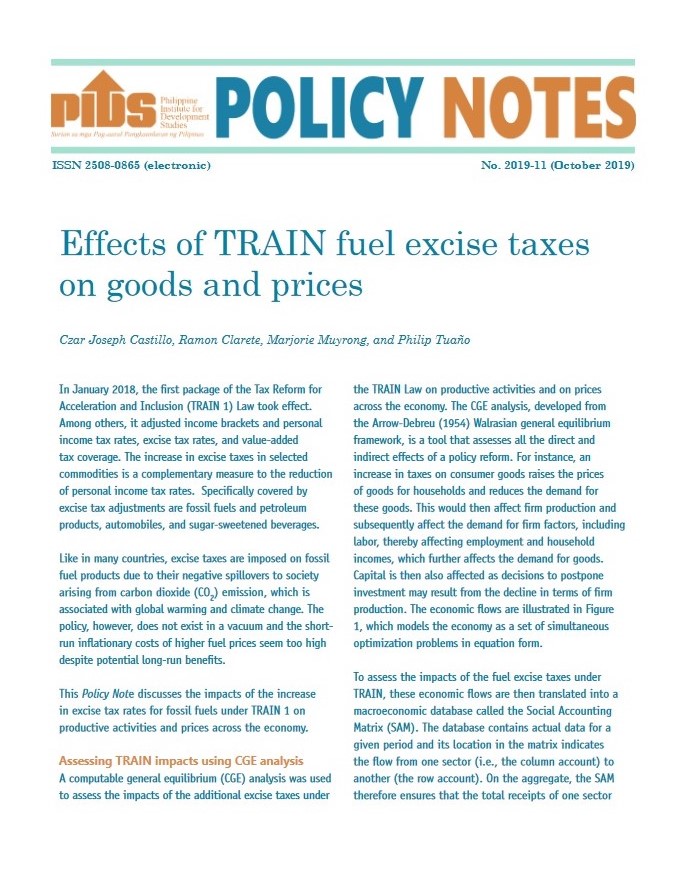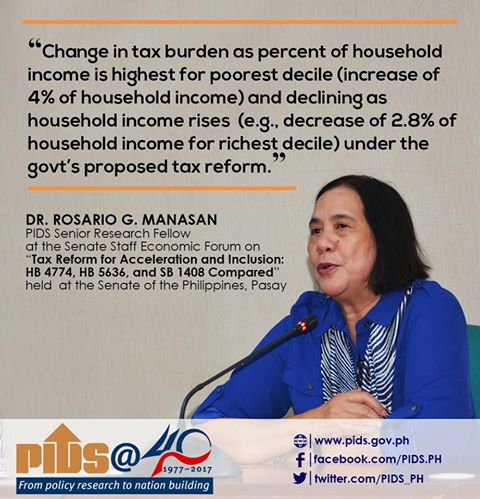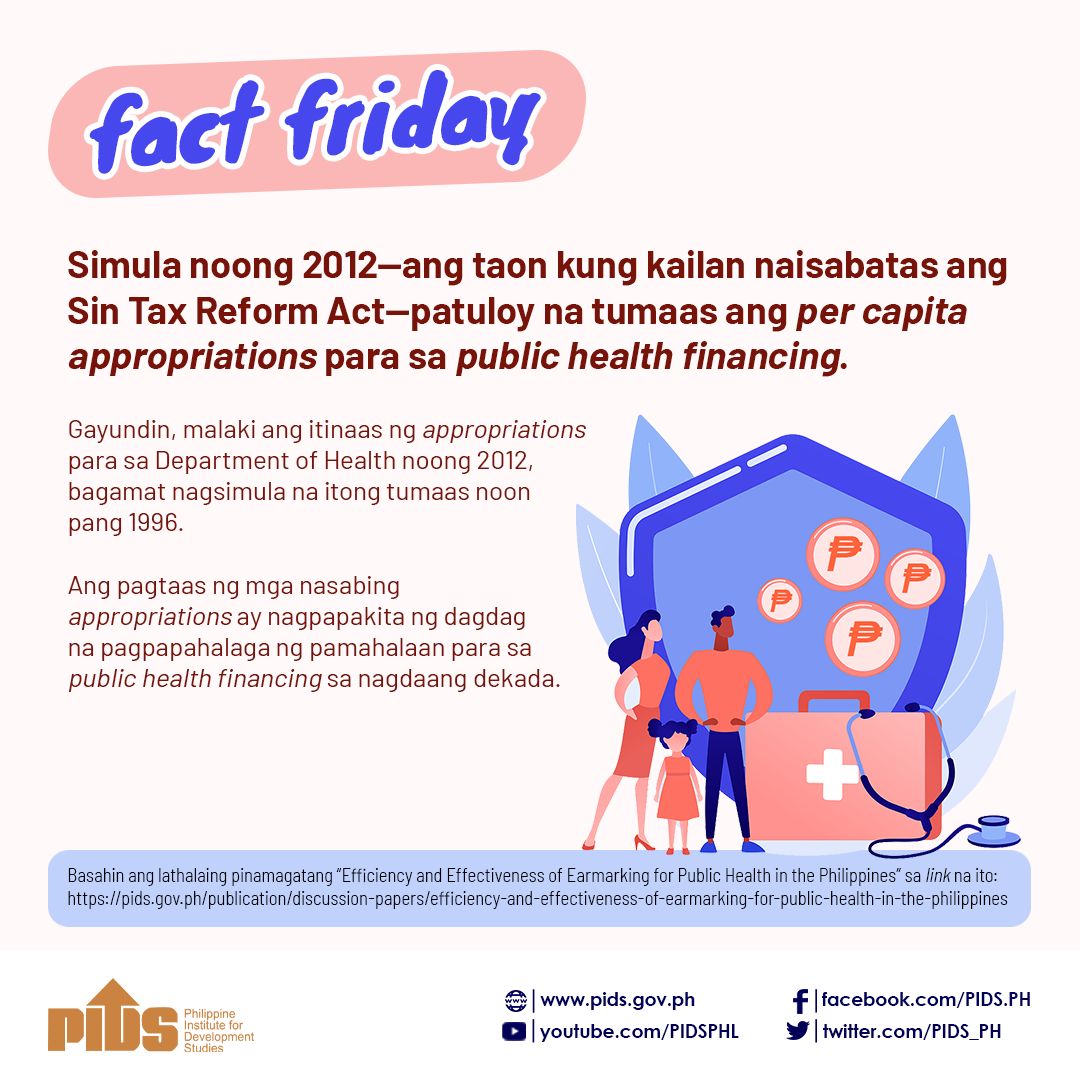The study assesses the impact of the first package of the Tax Reform for Acceleration and Inclusion (or TRAIN), which includes an increase in petroleum and coal excise taxes, passed by Congress in 2017. The study also reviews the context of the energy sector in the country given that petroleum and coal are the largest sources of energy in the country. Using a computable general equilibrium- microsimulation model, this paper focused on the impact of the increase in petroleum and coal excise taxes and the whole TRAIN 1 package (which includes a reduction in the personal income tax and the broadening of the value added tax). Results from the simulations indicate a slight adverse output effect for most industries under an increase in petroleum and coal taxes scenario. Under the whole TRAIN package, the output effects are slightly positive, especially for the several agriculture and service sectors, resulting in a higher level of carbon emissions. There is a slight rise in employment under the whole package, but poverty incidence increases slightly as excise taxes have an adverse effect in terms of higher commodities prices among the poor.
Citations
This publication has been cited 4 times
- Caraballo, Mayvelin. 2022. DoF studies Indonesia's carbon tax system. Manila Times.
- Luna, Franco. 2020. Pro-US stance in Middle East tension could put OFWs at risk — labor groups. Philippine Star.
- Ralf Rivas . 2022. Oligarchs, taxes, POGOs: Big business and the economy under Duterte. Rappler.
- Reyes, Mary Ann. 2019. Do it the right way. Philippine Star.

